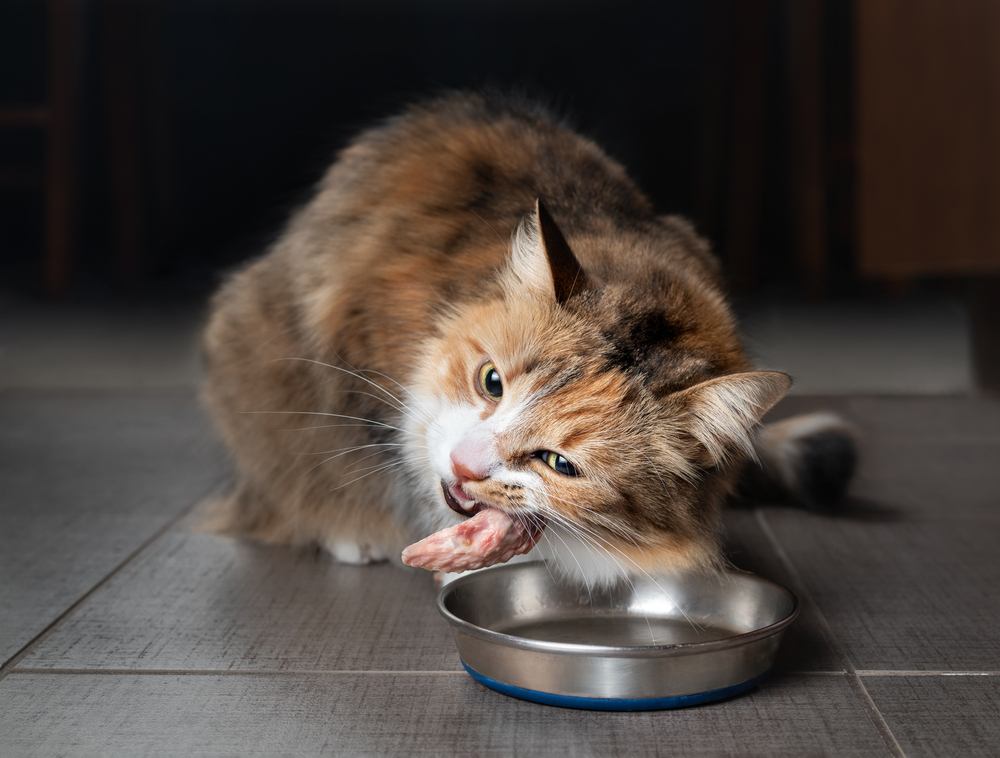Do you realise how important digestive health is to the general well-being of your furry friends? Similar to humans, dogs’ and cats’ digestive systems are in charge of dissolving food, absorbing vital nutrients, and eliminating waste. However, digestive issues can result in a variety of unpleasant symptoms, such as nausea, diarrhea, and weight loss.
We’ll look at the significance of digestive health for dogs and cats in this blog post, how to spot common digestive issues, and what you can do to maintain a healthy and happy digestive system in your pet such as scheduling a veterinarian consultation.
The Digestive System Of Dogs And Cats
In terms of their general health and well-being, dogs’ and cats’ digestive systems are extremely important. It converts food into nutrients that the body can utilise for energy, cellular growth, and tissue repair. The mouth, esophagus, stomach, intestines (small and large), pancreas, liver, and gallbladder are all parts of the digestive system.
Being classified as carnivores, dogs’ and cats’ digestive systems are built to process animal protein and fat. Compared to herbivores, they have shorter digestive tracts, which allows for quicker protein digestion. However, this also means that they are less able to digest complex carbohydrates, which, if consumed in excess, can cause digestive issues. As part of an annual check-up for your cat or dog, it’s crucial to check how their digestive systems are working in order to preserve their digestive health and avoid common digestive issues.
Common Digestive Problems In Dogs And Cats
Like people, dogs and cats can have digestive issues. These problems can range in severity from minor discomfort to critical health issues. The following are a few of the most typical digestive issues that affect cats and dogs:
- Vomiting: In dogs and cats, vomiting is a frequent sign of a wide range of ailments, including gastrointestinal infections, inflammation, pancreatitis, and the presence of foreign objects in the digestive system.
- Diarrhea: A frequent bowel movement known as diarrhea is characterised by loose or watery stools. Changes in diet, bacterial infections, parasites, or food intolerance are some of the possible causes.
- Constipation: In dogs and cats, constipation is characterised by difficulty passing stools and infrequent bowel movements. Dehydration, a diet lacking in fibre, or underlying medical conditions can all contribute to it.
- Pancreatitis: An inflammation of the pancreas, an organ that produces digestive enzymes, is referred to as pancreatitis. High-fat diets, obesity, or a genetic predisposition can all contribute to it. Pancreatitis signs and symptoms include nausea, constipation, and abdominal pain.
- Inflammatory Bowel Disease (IBD): IBD is a chronic digestive tract inflammation that affects both dogs and cats. Food allergies, bacterial infections, and immune system issues are some of its potential causes. Vomiting, diarrhea, and weight loss are symptoms.
Importance Of Nutrition For Digestive Health
The saying “you are what you eat” holds true for both humans and furry friends. For dogs and cats to maintain good digestive health, proper nutrition is essential. Giving your pet a nutritious, well-balanced diet can support overall health and prevent digestive problems.
Since they are carnivores and have digestive systems that are made to process animal-based protein, dogs and cats need diets that are high in protein and low in carbohydrates. Providing too much food to your pet can result in obesity and put undue stress on the digestive system. Therefore, it’s crucial to give them the proper amount of food.
It’s crucial to pick a high-quality pet food that satisfies your pet’s nutritional requirements if you want to make sure their diet is providing the essential nutrients. For advice on the ideal diet for your pet based on aspects like age, breed, and health status, speak with your veterinarian. Additionally, it’s crucial to always have access to clean, fresh water to support digestion and ensure proper hydration.

Probiotics And Digestive Health
Probiotics are advantageous live microorganisms that can help dogs’ and cats’ digestive health. They can aid in restoring the balance of bacteria in the gut, resulting in better digestion and general health. They are present in some foods and supplements.
Probiotics work by introducing healthy bacteria into the gut, which compete with harmful bacteria for nutrients and lessen their ability to do harm. Additionally, they aid in bolstering the gut barrier, which stops harmful substances from inflaming the body by entering the bloodstream.
Probiotics have been shown to be helpful in treating digestive problems in dogs and cats, including diarrhea, constipation, and inflammatory bowel disease, according to a number of studies. Additionally, they can boost the immune system, lessen the chance of contracting infections, and even enhance mental health.
It’s crucial to choose a probiotic supplement for your pet that has been created especially for dogs or cats and contains a variety of healthy bacterial strains. Before giving your pet any new supplements, always get advice from your vet, especially if they already have a medical condition or are taking other medications.
Lifestyle Factors Affecting Digestive Health
The digestive health of dogs and cats can be impacted by a variety of lifestyle factors in addition to diet and probiotics. Exercise is one of the most important factors. Exercise on a regular basis can help to stimulate the digestive system, preventing problems like constipation and encouraging a regular bowel movements.
Stress is a significant lifestyle component as well. Stress can harm digestive health by causing more inflammation and less digestive enzyme production. It’s crucial to give your pet a relaxing and comfortable environment in order to lower stress levels. Natural remedies like lavender or chamomile can be used for this, along with lots of opportunities for play and social interaction.
Lastly, it’s crucial to keep an eye on your pet’s water consumption. Constipation and other gastrointestinal issues can result from dehydration. At all times, make sure your pet has access to clean, fresh water, and encourage them to sip water frequently.
You can support your pet’s best digestive health by being mindful of these lifestyle factors.
Final Thoughts
The overall well-being of our furry friends depends heavily on their digestive health. To make sure that our pets maintain optimal digestive function, we as pet owners must pay close attention to their diet, lifestyle, and general health.
Giving our pets a balanced and healthy diet is crucial because nutrition is important for promoting good digestive health. Probiotics can help maintain healthy gut flora and lower the risk of digestive issues.
Along with diet and probiotics, other lifestyle choices like exercise, stress management, and maintaining a healthy weight can also significantly affect the digestive health of our pets.
It is crucial to seek veterinary care right away if you notice any symptoms of digestive problems in your pet, such as vomiting, diarrhea, or loss of appetite. Our furry friends can maintain healthy digestion and live happy, healthy lives with the right nutrition and care.
Contact Toorak Road Veterinary Clinic Today
If you’re concerned about your furry friend’s digestive health, don’t hesitate to reach out to the experts at Toorak Road Veterinary Clinic. Our experienced veterinarians can provide tailored advice on nutrition, supplements, and lifestyle changes to promote a healthy digestive system for your pet. Contact us today to schedule an appointment and ensure your pet’s digestive health is in top condition!
Please do not hesitate to call us today on (03) 9809 2700 or make an appointment.

